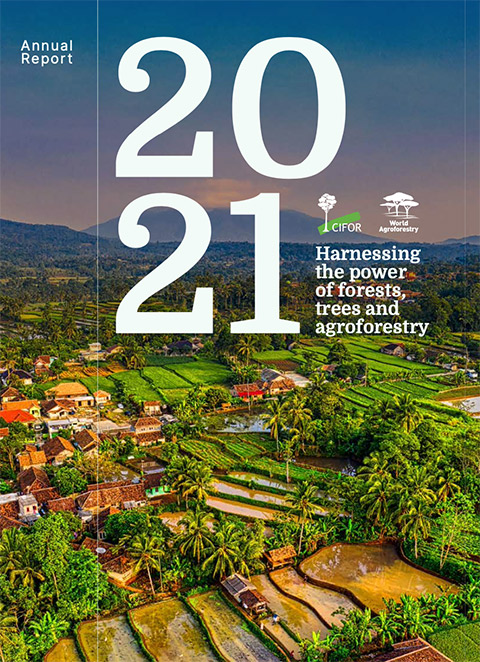The Mau Forest Complex is Kenya’s last big ‘water tower’ or mountain forest, supplying clean water food, fodder and fuel for an estimated six million people and harbouring important biodiversity and carbon stores. But over the past decade, rampant deforestation due to agricultural development, charcoal production and expanding settlements has caused rivers to drop and turn brown with sediment.
Since 2012, researchers have mapped the critical links between forests and water this critical catchment area. Early efforts focused on training local water users to crowdsource data from their own rivers and lakes, demonstrating that citizen science can yield good quality data and bridge information gaps while engaging communities and raising awareness.
Recognizing the interconnected nature of forests and water in the region, the BMZ-funded ‘Water towers of East Africa’ launched a new phase in 2017 focused on governance – specifically, how to strengthen the joint management of forest and water resources to reverse or minimize forest degradation and ensure a sustainable delivery of water to communities downstream.
Covering seven sites across nearly 68,000 hectares in the South West and West Mau and the Mt Elgon Forest on both sides of the Kenya–Uganda border, the project conducted local knowledge-sharing workshops and developed activities to strengthen capacities in forest and water monitoring, and resource governance, while generating evidence to support new policy and practice options.
Local communities replanted degraded forests and riversides with over 15,000 indigenous tree species, and an area of more than 12 hectares was rehabilitated. Through 41 key informant interviews and 224 focus group discussions involving over 2,100 people, researchers gathered data on forest and water user associations.
"Participatory management plans for forests and sub-catchments aimed to foster collaboration among local communities, government, private companies and civil society, ensuring that the development process and content integrated gender and the approaches used are participatory,” said CIFOR-ICRAF Research Officer Douglas Bwire.
The project supported 3 PhD and 4 Masters students, and built capacities among 337 women and 465 men in joint forest and water governance, natural resource conflict management, citizen monitoring of water quality, and gendered perspectives in resource management. To discuss the gender gap in forest and water management, researchers held a radio talk show in the Mt Elgon area (now available as a podcast).
“Gender-sensitive feedback workshops were a key component of the project,” said Bwire. The meetings provided forums for community members to discuss and identify barriers, and the importance of involving women in leadership.
Supported by German Federal Ministry for Economic Cooperation and Development (BMZ)
“By the end of the project, we had raised awareness and strategies for gender integration in forest and water management plans. We also developed how-to guides for practitioners involved in forest and water management planning at the local level.”
Douglas Bwire
CIFOR-ICRAF Research Officer

